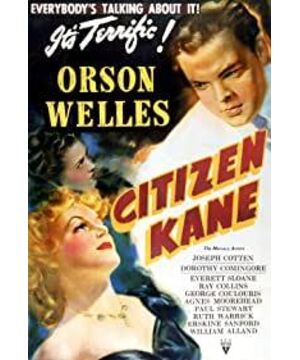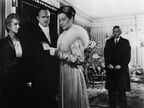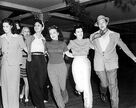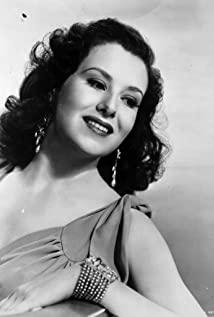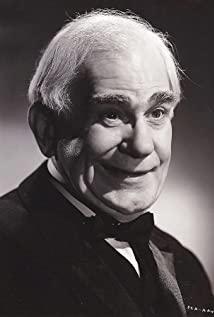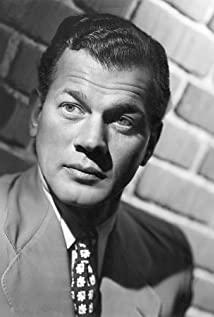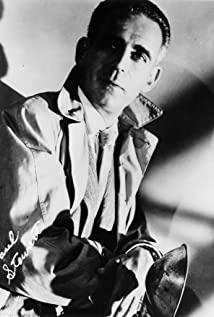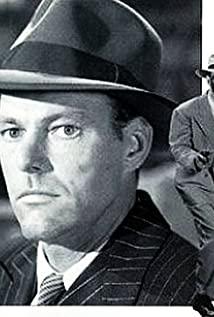After watching Citizen Kane, a figure similar to Kane kept echoing in my mind. They have a lot in common - wealthy, successful careers, rain and cloud, and so on. And he was James Gatsby. But by comparison, Kane is more lonely, because at different stages of his life, he is experiencing "loss" - family, friends, lovers, even himself. A splendid mansion, a meaningful "rosebud", a broken crystal ball, opened the heavy curtain of "Citizen Kane". The broken glass of the crystal ball at the beginning reflects the surprised and anxious look of the nurse after seeing Kane's death. This picture gives people a sense of novelty and makes the audience shine. This unique way of photography also makes it one of the most classic shots in film history. After puzzling openings and posturing news, we quickly learn that Kane had a legendary life that the general public longed for and out of reach. Although the second half of his life was a little bleak, it still left a huge imprint on the times. Tabloid reporter Thompson begins an investigation after the editor-in-chief becomes interested in Kane's last words, "Rosebud." Throughout the film, Thompson appeared behind his back many times, forming an over-the-shoulder shot. Shadows are sometimes used, but rarely a face. This way of filming seems to be parallel with reporters, interviewing people who used to be around Kane from the identity and perspective of reporters, and getting to know the deceased newspaper tycoon in more detail. These clips will make us feel more immersive, not paying more attention to the reporter's question, but paying more attention to the demeanor and tone of the interviewee. And the lines of the whole film are concise, fast and humorous, although not obscure, but meaningful. It not only makes people fully engaged and gives a better viewing experience, but also makes people think and think. As the film goes on, we slowly learn from Bernstein, Leland, Susan, and the butler that Kane took over the Enquirer against the wishes of Guardian Saichel and made it a New York bestseller newspaper; intervening in the US war against Spain, and running for governor like a tiger; marrying the president's niece, but cheating on the simple-minded Susan. They are all recorders of Kane's life and have had a certain influence on Kane. But they were all heartbroken by Kane and left slowly without becoming Kane's "rosebud". In fact, his seemingly successful life, but because of his strong character and unfortunate times, made him a thing of the past, sealed in a page of American history. His image became the epitome of the group of American businessmen in a time of false economic boom and financial crisis. They are self-serving, indifferent, and arrogant. They would rather dump fresh milk and let ripe apples rot than sell them at low prices to the unemployed poor, at the expense of their own interests. But they are also lonely, without the closest people, and have to lose something because of some decisions. In the film, there is a very interesting rule - whenever Kane begins to show strong control, a high-contrast lighting style will be formed, making Kane's face black, and at the same time it will become a high-angle shot, making Kane's Get taller. His tone also became stiff, and he often spoke in a commanding tone. It was as if Kane had changed into a person, full of power. Two of the more obvious ones were before Kane decided to put the "Declaration of Principles" in the newspapers, and after he ordered Susan to continue singing the opera that made her humiliating. This kind of picture makes us feel Kane's coldness again and again. With a firm, unshakable oppression, he brings us fear. Kane is domineering, ruthless, extremely strong, and has a little bit of rebellious and rebellious spirit. His whole life seemed to prove him right. Desire to be Sechelt's hater, tearing up the "Declaration of Principles", forcing Susan to sing the opera, clapping the audience angrily. He was reluctant to admit his mistakes or failures, even though he knew the opera "was a hell of a lot," and he finished the unfinished review of Leland as a compliment. But what Leland sent the next day again stirred Kane's anger, causing Susan to become a camel crushed by the last straw, and her life to go out like a light bulb in a theater. But why did Kane become so bossy and selfish? Because all of this comes from the fact that Kane left home when he was young and lacked the love of his parents. As Leland put it: "He only loved himself and believed only in himself." Although he resisted at first, he was forced to obey in the end. In the environment where Kane grew up, money represented everything, causing him to have a deformed view of money and values, believing that everything can be solved with money, even "love". He uses the material to bind others and keep them by his side as a kind of companion, to fill the lack of love in childhood and lonely souls. Even when the economic crisis came and Kane was about to go bankrupt, he did not give up the idea. The "rosebud" that runs through the entire film finally appears on a sled that is about to be burned. The "rosebud" represents neither a person nor an object, but a symbol of Kane's short but happy childhood, a warm home, and a beautiful and simple memory. He never told anyone about these things, but kept silently in his heart, becoming a bloody scar that could never be healed. The hobby of collecting human-shaped sculptures may be because the sculptures can completely belong to Kane, they have no thoughts, they will not change, and they will not leave; or maybe the statues represent Kane's former friends, and there are remnants of Kane in them. Eun has memories. He is not just collecting statues, but also memories. As Bernstein said to reporter Thompson: "A man may remember a lot of things you think he doesn't remember."
View more about Citizen Kane reviews


